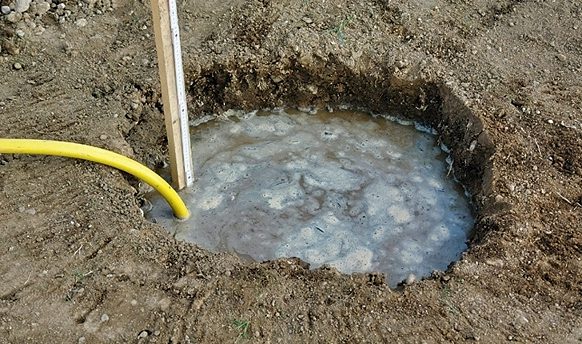
Introduction: The Top Environmental Factors When You Buy & Sell Land
When preparing to sell your land, understanding the environmental issues selling land can profoundly influence both the process and the final sale price. From soil quality and water resources to contamination and protected habitats, a multitude of environmental factors can impact the attractiveness and value of your property. In this blog post, we will delve into the crucial environmental issues that every seller should be aware of. We’ll offer insights on how these factors can affect your sale and provide strategies for addressing them effectively, ensuring you can navigate the sales process smoothly and maximize your land’s potential value.
1. Areas with Soil Quality & Stability Issues
The quality and stability of soil are critical factors that directly impact the value and potential uses of land. Poor soil quality or unstable ground can significantly restrict development opportunities, affecting the land’s marketability and attractiveness to potential buyers. To mitigate these environmental issues selling land, conducting a soil test is advisable before listing your property. This assessment provides essential information on the soil’s composition and quality, helping to clarify the land’s capabilities and limitations for prospective buyers.
If your land has issues, you may need to invest in remediation efforts to improve its marketability. This US Environmental Protection Agency (EPA) Soil Sampling Document describes general and specific procedures, methods and considerations to be used and observed when collecting soil samples for field screening or laboratory analysis.
2. Water Resources & Their Impact on Property Value
Water access is a vital component in real estate, particularly when it comes to the environmental issues selling land. The presence and quality of water resources on your property can significantly influence its appeal and value, especially for buyers with specific needs such as agriculture or development. Understanding the water sources available, along with any associated water rights and restrictions, is essential.
Water rights can vary widely depending on local laws. In some regions, riparian rights grant access to water for properties adjoining water bodies. In contrast, other areas operate under a doctrine of prior appropriation, where water usage rights are determined by historical use rather than property adjacency.
Moreover, conducting a percolation (perc) test can provide critical information about the soil’s drainage capacity, which is indispensable for properties reliant on septic systems rather than municipal wastewater services. A perc test, typically performed by a licensed professional, involves measuring how quickly water percolates through the soil in a test pit. This data is crucial for determining the suitability of the land for septic systems and can affect the development potential of the property.
It’s crucial to know the details of these rights associated with your real estate property when your buying land. This information can significantly impact the land’s value and desirability for buyers interested in agricultural or development purposes. Additionally, understanding the state regulations and restrictions on water resources can help you make informed decisions about the share uses and development of your land.

3. Air Pollution Problems are Part of the Issue
When selling your land, considering the impact of air pollution on health and the environment is crucial. Airborne pollutants like soot or aerosols can negatively affect farm animals, crops, and local vegetation, potentially degrading the value of your property over time. While completely avoiding air pollution may not be feasible, implementing measures such as sealing buildings and installing air filtration systems can help mitigate its effects. Here are some critical factors to consider regarding air quality when selling your land:
- Air Quality: The level of air cleanliness around your property significantly influences its marketability. Prospective buyers, particularly those interested in residential or commercial projects, will prioritize environments that meet health and safety standards. Regularly checking the air quality index for your area can provide valuable insights into this aspect.
- Proximity to Industrial Activities: The closeness of your land to industrial zones could impact air quality due to emissions. Although it may not stop a sale, being upfront about this proximity can affect negotiations.
- Prevailing Winds: Wind patterns play a crucial role in determining where air pollutants travel. If your land is located downwind from industrial sites, it could experience worse air quality, even if it’s not immediately adjacent to such facilities.
- Noise Pollution: While indirectly related to air quality, noise pollution significantly affects the environmental quality of your land. Noise from highways or airports can lessen the attractiveness of your property. For solutions to noise pollution issues, engaging a specialized company like Commercial Acoustics in Tampa, Florida, might be beneficial.
- Odor Concerns: Odors from nearby farms or waste processing facilities can also impact land desirability. While these don’t directly measure traditional air quality, persistent unpleasant smells can deter potential buyers.
By understanding these environmental factors and how they might influence the value of your land, you can prepare more effectively for sale. Being proactive and transparent about potential air and vapor pollution issues will allow potential buyers to make well-informed decisions, facilitating a smoother transaction process.
4. Real Estate Contamination & Hazardous Materials
The presence of contamination and hazardous materials on your property can significantly impact its value and development potential, making it one of the critical environmental issues selling land. To ensure that your property is as marketable as possible, it’s essential to address these environmental concerns before putting it on the market. Potential buyers may be wary of investing in properties that pose health risks or require extensive and expensive cleanup operations.
Prior to listing your property for sale, it’s advisable to conduct an environmental assessment by a certified professional. This assessment is pivotal in identifying any contaminants or hazardous substances present. Although the cost is generally modest, the information gained can be invaluable. If contamination is found, undertaking necessary remediation efforts not only complies with legal standards but also enhances the property’s appeal to buyers, potentially increasing its market value.
Transparency is crucial: disclosing any known contamination or hazardous materials to prospective buyers is often legally mandated. Failure to disclose can lead to significant legal and financial repercussions. By being open and proactive about these issues, you foster trust and confidence among potential buyers, paving the way for a smoother, more successful real estate transaction.
5. Property Wetlands & Flood Zones
The presence of wetlands and flood zones can significantly influence the value and permissible developments on a piece of real estate, making them key environmental issues selling land. Wetlands serve as vital ecosystems, offering numerous environmental advantages; however, they often come with stringent development restrictions due to their protected status. Similarly, properties in flood-prone areas might face developmental constraints and may require additional insurance, which can complicate the selling process. In Florida, the Department of Environmental Protection can provide information on real property law and what can be built on wetlands.
It is important to research and disclose any wetlands or flood zones on your real estate property. You may need to obtain a wetland delineation or consult with local authorities to determine the specific regulations and restrictions that apply. Being upfront about these environmental features is crucial. It not only helps in avoiding future legal complications but also equips potential buyers with the necessary information to make well-informed decisions regarding their investment.

6. Protected Habitats & Endangered Species Risk
When selling real estate, recognizing the environmental areas that might affect land value and marketability is crucial. Protected habitats and the presence of endangered species are significant environmental issues selling land. These factors can severely restrict how land is used and developed, as they are often governed by strict federal and state laws designed to preserve these critical environments.
Violations of environmental laws protecting these habitats and species can lead to substantial fines and legal consequences. Therefore, it is vital to thoroughly research and understand the restrictions that apply to your property before listing it for sale. Engaging a skilled environmental law firm can provide crucial guidance and help mitigate risks.
Transparency is key in real estate transactions involving protected areas. Potential buyers should be made aware of any conservation-related features on the property. Collaborating with wildlife agencies and environmental experts can help you formulate a management plan that protects these ecological assets while still exploring the land’s developmental possibilities.
It’s also worth noting that while protected habitats and the presence of endangered species might limit certain types of development, they can enhance the property’s appeal to specific buyers, such as those interested in conservation or eco-friendly projects. Understanding and promoting these aspects can therefore be a unique selling point, attracting buyers looking for properties that contribute to environmental stewardship. So be sure to stay up to date on these issues if you’re selling land in Florida.
7. Addressing Real Estate Environmental Issues Selling Land
To successfully sell your land and address any environmental concerns, consider taking the following steps:
- Conduct thorough Research & Assessments: Gather risk information about any environmental factor affecting your property, such as soil quality, water resources, contamination, and protected habitats. Hire professionals as needed to conduct assessments and provide guidance.
- Remediate Issues when Possible: Invest in remediation efforts for environmental conditions like contamination or poor soil quality. This can help improve the land’s marketability and demonstrate to buyers that you are proactive in addressing concerns. It’s advised that you reach out to waste management companies that can help clean up part of the problem areas.
- Be Transparent with Potential Buyers: Disclose any known environmental factors that may impact the property’s value and uses. Providing accurate and comprehensive information can help prevent future disputes and ensure a smoother transaction.
- Work with Experienced Professionals: Enlist the help of experienced real estate agents, environmental professionals, and legal experts familiar with environmental regulations and land sales. Their expertise can help you navigate the complexities of land with an environment factors.
- Market Your Land Effectively: Highlight the positive aspects of your property, such as unique features, natural resources, or uses. Prepare to address and manage any environmental concerns that may arise.
Conclusion: Environmental Factors to Sell Land
Understanding the impact of environmental factors is crucial when it comes to selling land. These factors, including the presence of wetlands, endangered species habitats, and potential pollution, can significantly influence the sale price and buyer interest. As the market shifts towards more environmentally conscious choices, recognizing these environmental issues selling land becomes paramount.
Being transparent about your property’s environmental attributes and challenges not only meets buyer expectations but also positions your land as a desirable purchase. By collaborating with environmental professionals and thoroughly researching your land’s ecological characteristics, you can ensure you achieve the best possible outcome in your sales endeavor. We can help by buying your land in Arkansas or any state within the USA.